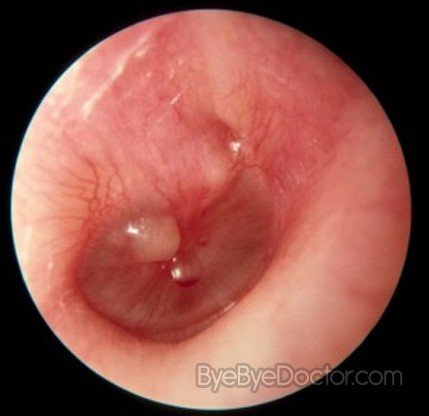What is Myringitis?
 This is a painful problem caused by inflammation of the middle ear as well as oozing blisters on the eardrum. It normally is a secondary complication of a viral or bacterial infection. An individual with myringitis is expected to involve pain that radiates as well as some degree of loss of hearing over the normal course of 2 days as a blister develops. It is very important to get medical attention at an emergency room or otolaryngologist specialist’s office at the beginning of pain in the ear in order to receive treatment which is appropriate.
This is a painful problem caused by inflammation of the middle ear as well as oozing blisters on the eardrum. It normally is a secondary complication of a viral or bacterial infection. An individual with myringitis is expected to involve pain that radiates as well as some degree of loss of hearing over the normal course of 2 days as a blister develops. It is very important to get medical attention at an emergency room or otolaryngologist specialist’s office at the beginning of pain in the ear in order to receive treatment which is appropriate.The eardrum which is also referred to as the tympanic membrane creates a barrier in between the outer ear and the middle ear. This helps to relay any sound waves to the brain and prevents foreign particles from becoming an irritation to the middle ear. When any bacteria or virus invades the eardrum, it causes inflammation that leads to itching, swelling and sensations of burning in the ear.
Acute infectious myringitis normally is a secondary infection following acute otitis media or upper respiratory tract infection and most commonly occurs in children.
Myringitis Symptoms
Myringitis is usually caused by an infection with a virus or bacteria. Often, the infection begins in the eardrum. The majority of cases of myringitis follow an ear infection in another part of the ear. Acute otitis media as well as swimmer’s ear both can lead to secondary infections of myringitis. Upper respiratory infections, for example pneumonia or flu, can dispose an individual to ear infections.
The symptoms and signs include:
- Drainage from the ear
- Hearing impairment
- Sudden onset of ear pain that lasts 1 to 2 days
- Fever
The symptoms of acute infectious myringitis may be:
- Complaint of severe pain in the ear
- Tenderness over mastoid process
- Otoscopic exam will reveal reddened, small, inflamed blebs in the ear canal, on the tympanic membrane, with bacterial invasion, in the middle ear.
Myringitis Causes
Myringitis is normally caused because of an infection with either a virus or bacteria. The common bacteria include:
http://www.Symptoms-Causes-treatment.blogspot.com detect diseases at an early stage symptoms, and find out the causes and treatments best suited.
- Mycoplasma pneumoniae
- Streptococcus pneumonaie
- Staphylococcus aureua
The majority of the time, myringitis will follow an infection in another part of the ear. Acute otitis media as well as swimmer’s ear often can lead to a secondary myringitis infection. Upper respiratory infections for example pneumonia or flu can predispose an individual to ear infections.
Myringitis Treatment
Treatment of myringitis can include the following:
- Antibiotics
- Antibiotics accompanied by steroid ear drops
- Ear drops which offer local anesthesia
- Rupturing any vesicles on the eardrum
Possible side effects of treatments:
- Antibiotics and other medications may cause allergic reaction
- Stomach upset
- Rashes
Hospitalization is not necessary for myringitis. As well as the treatment listed above, measures to get rid of pain are at times indicated. Analgesics, for example acetaminophen or aspirin as well as the use of heat to the external ear are normally sufficient, but pain which is severe can require the a prescription for pain medication.
Since it is often hard to determine bacterial from viral or mycoplasma otitis, antibiotic therapy is always indicated. Topical or oral antibiotics are used to either prevent or treat secondary infections.
Myringitis Prevention
The following are some measures to prevent problems with the ear:
- It should be stressed how important it is to complete the total prescribed antibiotic therapy
- To avoid myringitis, it is advised to get immediate treatment of acute otitis media
- Proper method for installing topical antibiotics should be shown to patient by doctor or his staff
- Avoid any prolonged immersion of the ear in water, such as pool or hot tub
- Stay away from individuals with upper respiratory infections
- Children should get flu as well as pneumonia vaccines
- Wash hands often